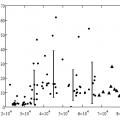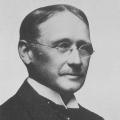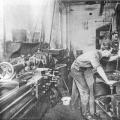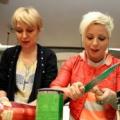1. Cheese-maker-master of the 5th category belongs to the category of workers.
2. A person with an average professional education and work experience from a year.
3. A cheese-maker-master of the 5th grade is accepted for the position and dismissed by the director of the organization on the proposal of the head of production (site, workshop).
4. Cheese-maker-master of the 5th category should know:
a) special (professional) knowledge of the position:
Serviced equipment device;
Consumption rates of used raw materials and materials;
Accounting and reporting rules;
Requirements for oil quality;
b) general knowledge of an employee of the organization:
Rules and regulations for labor protection, safety, industrial sanitation and fire protection,
Terms of use of funds individual protection;
Requirements for the quality of work (services) performed, for the rational organization of work in the workplace;
Types of marriage and ways to prevent and eliminate it;
Industrial signaling.
5. In his activity, the cheese-maker-master of the 5th category is guided by:
RF legislation,
The charter of the organization,
Orders and orders director of the organization,
This job description,
Internal rules work schedule organizations,
6. A cheese-maker-master of the 5th category reports directly to a worker with a higher qualification, the head of production (site, workshop) and the director of the organization.
7. During the absence of the 5th grade cheesemaker-master (business trip, vacation, illness, etc.), his duties are performed by a person appointed by the director of the organization on the proposal of the head of production (site, workshop) in the prescribed manner, who acquires the corresponding rights, obligations and bears responsibility for the fulfillment of the duties assigned to him.
II. Job responsibilities
The duties of a 5th grade cheese-maker are:
a) Special (professional) job responsibilities:
Supervising the conduct of the cheese production process in the production of cheese up to 300 tons per year in vats (boilers), cheese makers.
Accounting for incoming raw materials.
Sorting milk by quality and determining its suitability for cheese making on the basis of laboratory analyzes and organoleptic properties.
Calculation of milk normalization by fat and protein content and determination of the required amount of bacterial starter culture, chemicals, clotting enzyme.
If necessary, make a bacterial starter culture.
Control over the processing of curd and curd in vats, cheese makers.
Determination of readiness of curd before molding.
Control over the process of forming and pressing cheese.
Periodic check of the active acidity of the cheese by the indicator method.
Weighing and transfer of cheese to the salting compartment.
Quality control of washing equipment, forms, inventory.
Record keeping and reporting.
Participation in the assessment of the quality of cheeses.
b) General job responsibilities of an employee of the organization:
Compliance with the Internal Labor Regulations and other local regulations of the organization,
Internal rules and regulations of labor protection, safety, industrial sanitation and fire protection.
Execution within employment contract orders of employees, by whom it was repaired in accordance with this instruction.
Carrying out work on acceptance and delivery of the shift, cleaning and washing, disinfection of serviced equipment and communications, cleaning the workplace, devices, tools, as well as keeping them in proper condition;
Maintenance of established technical documentation
We bring to your attention a typical example of the job description of a cheese-maker-master, a sample of 2019. A person with secondary vocational education and work experience can be appointed to this position. Do not forget, each instruction of the master cheese-maker is handed out against a receipt.
Typical information on the knowledge that a master cheese-maker should have is presented on. About duties, rights and responsibilities.
This material is included in the huge library of our site, which is updated daily.
1. General Provisions
1. The master cheese maker belongs to the category of workers.
2. A person with a secondary vocational education and work experience of ________ years is accepted for the position of a cheese-maker-master.
3. Cheese-maker-master is hired and dismissed by the director of the organization on the proposal of the head of production (site, workshop)
4. The master cheese maker should know:
a) special (professional) knowledge of the position:
- device of the serviced equipment;
- consumption rates of used raw materials and materials;
- rules of accounting and reporting;
- requirements for oil quality;
b) general knowledge of an employee of the organization:
- rules and norms of labor protection, safety engineering, industrial sanitation and fire protection,
- rules for using personal protective equipment;
- the requirements for the quality of work (services) performed, for the rational organization of work in the workplace;
- types of marriage and ways to prevent and eliminate it;
- industrial signaling.
5. In his activity, a master cheese maker is guided by:
- the legislation of the Russian Federation,
- the Charter of the organization,
- orders and orders of the director of the organization,
- this job description,
- the rules of the internal labor regulations of the organization,
— __________________________________________________.
6. Cheese-maker-master reports directly to a worker with higher qualifications, the head of production (site, workshop) and the director of the organization.
7. During the absence of a cheese-maker-master (business trip, vacation, illness, etc.), his duties are performed by a person appointed by the director of the organization on the proposal of the head of production (site, workshop) in the prescribed manner, who acquires the corresponding rights, obligations and is responsible for the execution the responsibilities assigned to him.
2. Job responsibilities of a cheese-maker
The duties of a master cheese maker are:
a) Special (professional) job responsibilities:
- Management of the cheese production process in the production of cheese up to 300 tons per year in baths (boilers), cheese makers.
- Accounting for incoming raw materials.
- Sorting milk by quality and determining its suitability for cheese making on the basis of laboratory analyzes and organoleptic properties.
- Calculation of the normalization of milk in terms of fat and protein content and determination of the required amount of bacterial starter culture, chemicals, clotting enzyme.
- If necessary, making a bacterial starter culture.
- Control over the process of processing curd and curd in vats, cheese makers.
- Determination of the readiness of the curd before molding.
- Control over the process of forming and pressing cheese.
- Periodic check of the active acidity of the cheese by the indicator method.
- Weighing and transfer of cheese to the salting compartment.
- Quality control of washing equipment, forms, inventory.
- Keeping records and reporting.
- Participation in the assessment of the quality of cheeses.
b) General job responsibilities of an employee of the organization:
- Compliance with the Internal Labor Regulations and other local regulations of the organization,
- internal rules and regulations of labor protection, safety, industrial sanitation and fire protection.
- Fulfillment, within the framework of the employment contract, of the orders of the employees who repaired it in accordance with this instruction.
- Carrying out work on acceptance and delivery of the shift, cleaning and washing, disinfection of serviced equipment and communications, cleaning of the workplace, devices, tools, as well as keeping them in proper condition;
- Maintenance of established technical documentation
3. The rights of the master cheese maker
The master cheese maker has the right:
1. Submit proposals for the management's consideration:
- to improve the work related to the provisions of this instruction responsibilities,
- on bringing to material and disciplinary responsibility of employees who have violated production and labor discipline.
2. To request from the structural divisions and employees of the organization the information necessary for him to perform his duties.
3. To get acquainted with the documents defining his rights and obligations in the position held, the criteria for assessing the quality of the performance of official duties.
4. To get acquainted with the draft decisions of the management of the organization concerning its activities.
5. Require the management of the organization to provide assistance, including the provision of organizational and technical conditions and the execution of the established documents necessary for the performance of official duties.
6. Other rights established by the current labor legislation.
4. Responsibility of the master cheese maker
The master cheese maker is responsible in the following cases:
1. For improper performance or non-performance of their official duties provided for by this job description - within the limits established by the labor legislation of the Russian Federation.
2. For offenses committed in the course of their activities - within the limits established by the current administrative, criminal and civil legislation of the Russian Federation.
3. For causing material damage to the organization - within the limits established by the current labor and civil legislation of the Russian Federation.
Job description master cheese maker - sample of 2019. Responsibilities of a cheese-maker-master, the rights of a cheese-maker-master, responsibility of a cheese-maker-master.
History of the profession
About the use cheese
mentioned in Homer's Odyssey and Iliad. The technology of Swiss cheese has been known for over a thousand years, Roquefort - 900 years. Currently, about one and a half thousand types and varieties of cheese are known in the world.
Cheeses are produced hard, soft, pickled, processed. Each type of cheese differs in fat, moisture, salt content, ripening time, special taste and smell. The shape, size, weight of the cheese are determined by the manufacturing technology and historical traditions. The demand for cheese is increasing, as cheese is perhaps the most valuable product obtained from milk. It is very high in calories and is completely absorbed by the body. Its calorie content is higher than the calorie content of pork, ham and even caviar. At all times, the skill of cheese makers was appreciated. The Roman agronomist Lucius Columella believed that the people who made cheese were wizards and sorcerers.
Fills cheese vats or cheese makers with milk. To bring the milk to the desired fat content, he adds cream to the milk. In certain doses, it introduces mineral salts, bacterial starter culture and clotting enzyme. Determines the readiness of the clot (by taste, color, smell, consistency). Crushes the curd with mechanical knives, marks out a layer of cheese mass for cutting. Gives the cut cheese mass a definite shape, compresses it and sends it for salting and ripening in a cheese storage facility. The master cheese maker delves into all aspects of the cheese production process - he checks the separation modes, heat treatment of milk (pasteurization), which ensures its bacterial purity, preparation and quality of bacterial starter culture, on which the quality of cheese largely depends. The foreman strictly monitors the sanitary condition of the workshop, timely and thorough washing of equipment and implements, compliance with the rules of personal hygiene by the workers.
Whole turn technological process, the mode of performance of individual operations is recorded by the master in the technological journal, and keeps daily records of the material values of raw materials, auxiliary materials, and finished products.
Qualification Requirements
Must know composition and physicochemical properties of milk and cheese, cheese production technology, possible cheese defects and methods of their prevention, requirements for the quality of raw materials and cheese used, consumption rates of raw materials and materials used, accounting and reporting rules.
Professionally important qualities:
- mobility;
- attentiveness;
- observation;
- good eyesight and smell;
- good visual memory.
Medical contraindications
Infectious and skin diseases.
Related professions
Butter-master, master of dairy production, pasteurization apparatus operator, compactor, cheese salt.
Profession materials:
- Cheese loves a good mood (Newspaper "Altayskaya Pravda" No. 159 08/26/2017)
Unified tariff and qualification reference book of jobs and professions of workers (ETKS). Issue No. 49
Approved by the Resolution of the Ministry of Labor of the Russian Federation of 05.03.2004 N 33
Master cheese maker
§ 61. Cheese-maker-master of the 5th category
Description of works... Supervising the conduct of the cheese production process in the production of cheese up to 300 tons per year in vats (boilers), cheese makers. Accounting for incoming raw materials. Sorting milk by quality and determining its suitability for cheese making on the basis of laboratory analyzes and organoleptic properties. Calculation of milk normalization by fat and protein content and determination of the required amount of bacterial starter culture, chemicals, clotting enzyme. If necessary, make a bacterial starter culture. Control over the processing of curd and curd in vats, cheese makers. Determination of readiness of curd before molding. Control over the process of forming and pressing cheese. Periodic check of the active acidity of the cheese by the indicator method. Weighing and transfer of cheese to the salting compartment. Quality control of washing equipment, forms, inventory. Record keeping and reporting. Participation in the assessment of the quality of cheeses.
Must know: composition and physicochemical properties of milk and cheese; cheese production technology; possible defects of cheese and methods of their prevention; requirements for the quality of the raw materials and cheese used; consumption rates of raw materials and materials used; accounting and reporting rules.




